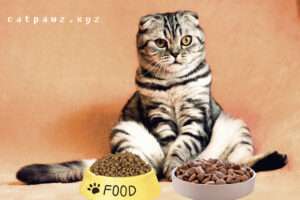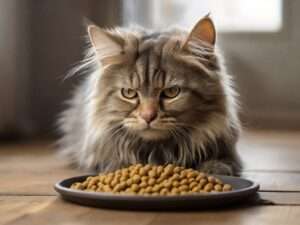
As a cat owner, you want nothing but the best for your furry companion—especially when it comes to their diet. With so many pet food brands on the market, it’s easy to feel overwhelmed. One name that consistently stands out is Science Diet Cat Food, a veterinarian-recommended brand that promises tailored nutrition for cats. But does it truly deliver?
In this honest review, we’ll explore the pros and cons of Science Diet Cat Food, dig into its ingredients, and help you decide whether it’s the right choice for your pet. Let’s get started!
What Is Science Diet Cat Food? A Closer Look
Science Diet Cat Food (officially known as Hill’s Science Diet) is a premium pet food brand developed by veterinarians and animal nutritionists. Founded in 1939, the brand focuses on creating formulas backed by scientific research to address specific health needs, life stages, and medical conditions in cats.
The product line includes:
- Dry kibble and wet food
- Kitten, adult, and senior formulas
- Specialized diets for weight management, urinary health, and sensitive digestion
- Prescription diets (Hill’s Prescription Diet) for cats with chronic illnesses like kidney disease or allergies
But does this science-driven approach translate to real-world benefits for your cat? Let’s weigh the pros and cons.

The Pros of Science Diet Cat Food
1. Veterinarian Trust and Scientific Backing
One of the biggest advantages of Science Diet Cat Food is its strong reputation among veterinarians. Many vets recommend Hill’s products because:
- The brand invests heavily in clinical research and collaborates with veterinary schools.
- Formulas are tested for safety and efficacy.
- Prescription diets are designed to manage specific health issues, such as urinary crystals or obesity.
If your vet suggests Science Diet, it’s often because they trust its science-based approach to feline nutrition.
2. Life-Stage Specific Formulas
Cats have different nutritional needs as they age. Science Diet offers tailored options for:
- Kittens: High-protein formulas with DHA for brain development.
- Adults: Balanced nutrition for energy and weight maintenance.
- Seniors: Lower-calorie recipes with joint-supporting glucosamine.
This ensures your cat gets the right nutrients at every phase of life.
3. Specialized Diets for Health Concerns
Science Diet shines in addressing medical conditions. For example:
- Urinary Care: Reduces the risk of bladder stones with controlled mineral levels.
- Weight Management: High-fiber, low-calorie recipes to help overweight cats shed pounds.
- Sensitive Stomach: Easily digestible ingredients for cats with food sensitivities.
These formulas can be lifesavers for cats with chronic health issues.
4. High-Quality Ingredients (Compared to Grocery Store Brands)
While Science Diet isn’t a “holistic” or grain-free brand, its ingredients are generally higher quality than mass-market options like Purina or Friskies. Key features include:
- Real meat as the first ingredient in many formulas.
- No artificial colors, flavors, or preservatives.
- Added vitamins, minerals, and antioxidants for immune support.
The Cons of Science Diet Cat Food
1. Higher Price Point
Science Diet is pricier than budget-friendly brands. A 7-pound bag of dry food costs around $35–$50, while wet food can run $2–$3 per can. For multi-cat households, this adds up quickly.
However, many owners argue that the health benefits justify the cost—especially for cats with medical needs.
2. Contains Fillers Like Corn and Wheat
While Science Diet avoids artificial additives, some formulas include corn, wheat, or soy as fillers. These ingredients are not inherently harmful, but they offer less nutritional value than meat or vegetables. Cats, as obligate carnivores, thrive on protein-rich diets, so some owners prefer grain-free alternatives.
3. Mixed Reviews on Palatability
Cats can be picky eaters, and not all felines love the taste of Science Diet. Online reviews are split:
- Some cats gobble it up immediately.
- Others refuse to eat it, especially the prescription formulas.
If your cat is finicky, you may need to experiment with flavors or mix wet and dry food.
4. Prescription Diets Require Vet Approval
Hill’s Prescription Diet formulas (e.g., for kidney disease or diabetes) are only sold through veterinarians. While this ensures proper oversight, it can be inconvenient for pet owners who prefer shopping online or in-store.

Key Ingredients in Science Diet Cat Food: What’s Inside?
Let’s break down the ingredients in a popular formula: Science Diet Adult Indoor Chicken Recipe Dry Cat Food.
- Chicken: The primary protein source.
- Brewers Rice: A carbohydrate filler.
- Corn Gluten Meal: A plant-based protein booster (controversial among some pet owners).
- Animal Fat: Provides essential fatty acids.
- Vitamins & Minerals: Including taurine, vitamin E, and omega-6 fatty acids.
The Verdict: While not a “perfect” ingredient list, it avoids artificial additives and prioritizes animal protein.
Science Diet vs. Competitors: How Does It Stack Up?
- Blue Buffalo: Offers grain-free options but lacks prescription diets.
- Royal Canin: Similar to Science Diet in quality and vet recommendations but often pricier.
- Purina Pro Plan: More affordable but uses more by-products and fillers.
For cats with health issues, Science Diet and Royal Canin are the top vet-recommended choices.
FAQs About Science Diet Cat Food
Q: Is Science Diet good for cats with allergies?
A: Yes! Their Sensitive Stomach & Skin formula uses hydrolyzed proteins to reduce allergic reactions.
Q: Can kittens eat Science Diet?
A: Absolutely. Their Kitten Healthy Development formula supports growth with added DHA.
Q: Why is my cat vomiting after eating Science Diet?
A: Sudden diet changes can upset a cat’s stomach. Transition slowly over 7–10 days. If vomiting persists, consult your vet.
Final Thoughts: Is Science Diet Worth It?
Science Diet Cat Food is a strong choice for:
- Pet owners who trust veterinarian recommendations.
- Cats with medical conditions requiring specialized diets.
- Those willing to pay a premium for science-backed nutrition.
However, budget-conscious shoppers or cats with grain sensitivities might prefer alternatives like Wellness Core or Instinct Original.
Pro Tip: Always consult your vet before switching your cat’s food, especially if they have health issues.


